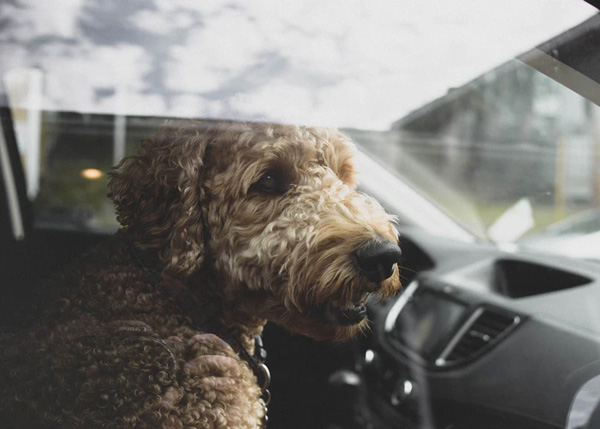As weather heats up, beware of danger to kids–or pets–in hot cars

 We all are familiar with extreme weather events, like tornadoes and hurricanes, which result in injuries and deaths. But we may be less aware of a silent, weather-related killer called pediatric vehicular heatstroke (PVH).
We all are familiar with extreme weather events, like tornadoes and hurricanes, which result in injuries and deaths. But we may be less aware of a silent, weather-related killer called pediatric vehicular heatstroke (PVH).
The victims are children who succumb to extreme hypothermia when left unattended in closed motor vehicles.
The physical process that heats up the interior of a vehicle is known as the greenhouse effect. The sun emits shortwave energy. Objects at the earth’s surface absorb shortwave energy and emit long wave energy.
Fortunately for greenhouses, but unfortunately for closed vehicles, short wave solar energy easily passes through glass windows but the long wave energy reflected back toward the sky does not. As a result, the interior of closed vehicles heats up quickly when parked.
Rapid heating
Studies of closed vehicles show that the rate of interior heating is very rapid. With air temperatures at and above 70 degrees, interior temperatures rise by nearly two degrees per minute once a closed vehicle is parked.
Within one hour, a 70-degree car interior temperature will climb to more than 110 degrees. On a 90-degree day. the inside temperature jumps to more than 130 degrees. You can sadly imagine the consequences for a young child left in a parked vehicle.
Statistics show that nearly three quarters of PVH fatalities occur because an adult caregiver exited a vehicle, leaving a child behind.
Sleeping children in rear-facing car seats are especially at risk.
Most of the remaining deaths were due to children entering unlocked parked vehicles and accidently locking themselves inside.
It is not a small problem. Over the last 23 years, nearly 900 PVH deaths have been reported in the United States alone. That is nearly 40 child fatalities per year.
The saddest part of this story is that each death is preventable.
Safety steps
Here are some tips on how to avoid these needless tragedies:
Always lock your car and ensure children do not have access to keys or remote entry devices.
Keep a child’s favorite stuffed animal in the front passenger seat to remind yourself of the precious cargo in the back.
Place your purse, briefcase or cell phone in the back seat before starting a journey.
Remember that pets are also vulnerable to heatstroke. Opening the car windows a few inches does not minimize the threat of PVH or animal heatstroke. Very little air exchange occurs in vehicles with partially open windows, and the greenhouse effect vastly overwhelms any slight cooling that does occur.

Woody Whitlatch
Woody Whitlatch is a meteorologist retired from PG&E. Email your questions or comments to
clayton_909@yahoo.com
